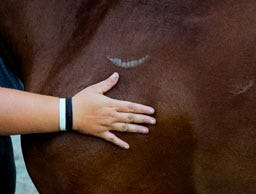How Often Should You Worm Your Pet?
Ensuring your pet is up to date with their routine healthcare is an essential part of pet ownership, but it can take a lot of work to keep track of flea and worming treatments, especially in multi-pet households. And, what’s more, the frequency with which your pet needs to be treated can vary depending on their lifestyle, who shares your home, and more!
Luckily for you, and thanks to the handy Drontal Dosage Calculator, we’ve found the perfect timeline for your pet’s worming routine and the best products for the job. So, how often should you be worming your pet?
Is Your Pet At Risk of Worms?
Most pet owners are advised to worm their pets at least four times a year. This means giving your pet a suitable worming treatment once every three months. This might not seem like enough, and for some pets, it’s not.
Your pet can easily pick up worms if they eat contaminated soil or faeces, drink from contaminated water sources, or even ingest a contaminated flea while grooming. Unfortunately, many worming treatments available are only effective in killing the initial infection but do not offer prolonged protection against worms. This means your pet is still open to worm infestations between treatments.
With this in mind, The European Scientific Counsel of Companion Animal ParasitesⓇ (ESCCAP) has developed a risk scale to help you find the perfect worming routine for your pet based on their behaviours and risks.
The Risk Scale for Worms
There are three primary risk levels for your pet contracting worms. These consider how much access your pet has to the outside and the chances of them contracting worms from other pets, wildlife, or their environment. The lower your pet’s risk, the less they’ll need to be treated.
This scale is as follows:
- Low risk of contracting worms - Your pet lives only indoors and does not have much-unsupervised contact with high worm population places (parks, sandpits, playgrounds, slugs or snails, raw meat or prey animals)
- Medium risk of contracting worms - Your pets have access to places with a high worm population but do not hunt unsupervised or tend to eat things they shouldn’t.
- High risk of contracting worms - Your pet has access to places with high worm populations where they can hunt unsupervised and have a tendency to eat things they shouldn’t.
By knowing your pet’s behaviour both inside the house and out, you can be proactive with their worming routine to ensure that they’re worm-free!


How Often Should You Worm A Dog?
Based on the ESCCAP’s recommendations for your dog’s risk scale, here are some guidelines for how often you should worm them based on their risk of contracting worms:
- Low Risk - Treat your dog for worms once every six months and monitor for symptoms of infestations.
- Medium Risk - Treat your dog for worms once every three months and monitor for symptoms of infestations.
- High Risk - Treat your dog for worms once a month and monitor for symptoms of worms.
If you notice your dog displaying symptoms of worm infestations (weight loss, scratching their rear, bloated belly, vomiting or diarrhoea with blood or visible worms in), contact your vet as soon as possible to discuss their worming plan and find a suitable dog worming treatment for your dog.
Dogs that live in areas with a high fox population, such as cities, should also worm their dogs more frequently as there is an increased risk of them contracting fox tapeworms (Echinococcus multilocularis), which can cause parasitic tumour-like lesions often starting in the liver, that can be fatal if untreated.
How Often Should Puppies be Wormed?
Despite having limited outdoor access, veterinary experts recommend puppies be wormed with an appropriate puppy wormer like the Drontal® Oral Suspension for Puppies as soon as they turn two weeks old. They should then be treated once every two weeks until they reach twelve weeks old, after which they can be switched to an adult worming schedule based on their risk factor.
Puppies require more frequent worming treatments because they can contract worms (particularly roundworms) while in the mother’s womb or through her milk. Puppies with worm infestations can face several health issues, including frequent diarrhoea, bloat, and stunted growth as the worms rob the essential nutrients they need for bone, muscles and organ development.
Whether you’re getting your puppy through a rescue or from a breeder, always ensure they have been given the appropriate worming for their age and haven’t got any existing infestations when you bring them into your home.
How Often Should You Worm a Pregnant Dog?
As mentioned, adult female dogs can pass worms to their litter in the womb and during lactation.
If you plan to breed from your dog, always ensure they are wormed with a suitable wormer, like the Drontal Tasty Bone wormer, before they’re mated. After this, you should worm your dog with a worming treatment suitable for pregnant bitches within the first 45 days of their pregnancy. Be sure to discuss with your vet which treatment is appropriate and safe for pregnant dogs.
You should worm your dog again once she’s given birth to ensure that no worms are passed to the puppies, and you should also have the puppy on a suitable worming routine. If you’re worried about which wormers are safe for pregnant or lactating dogs, consult your vet for recommendations.
For accidental pregnancies or caring for a rescued pregnant dog, speak with your vet or the rescue centre for advice and support on worming pregnant dogs and puppies.
How Often Should You Worm Dog's on Raw Diets?
Raw diets are becoming a popular choice for many dog owners, but unfortunately, they can also increase your dog’s risk of contracting worms, especially if the raw diet isn’t prefrozen.
Dogs on raw diets should be treated monthly for Toxocara, which is a type of roundworm. This is because Toxocariasis infections can potentially be passed from pets to humans, which, if untreated, may cause blindness and meningoencephalitis. While this is a rare instance, it’s always safe to err on the side of caution when feeding your dog a raw diet, and more frequent worming treatments can help you do so.
How Often Should You Worm a Cat?
Much like with dogs, how often you worm your cat will depend on the likelihood of them picking up worms. For example, an indoor cat wouldn't need to be wormed as frequently as a free-roaming cat with a penchant for hunting.
When figuring out how often you should worm your cat, it’s important to check the risk scale to see how likely they are to pick up worms from their environment and then alter their schedule so you’re treating them with a suitable cat worming treatment as necessary:
- Low Risk - Treat your cat for worms once every six months and monitor for symptoms of infestations.
- Medium Risk - Treat your cat for worms once every three months and monitor for symptoms of infestations.
- High Risk - Treat your cat for worms once a month and monitor for symptoms of worms.
Cats can be trickier to worm as they’re not a fan of taking tablets, but by using the Dronspot® Spot-On Wormer, you can take the drama out of routine worming and ensure your cat is free from worms.
How Often Should Kittens be Wormed?
As with puppies, kittens are at a much higher risk of contracting worms, and if they do, it can cause several health complications, including bloat, diarrhoea, and stunted growth.
Kittens should be wormed first at three weeks old with a suitable kitten wormer and then again every two weeks until they’re 16 weeks old. After this, they can move to an adult worming schedule tailored to their lifestyle and environment.
Dronspot® Spot-On Wormer for Small Cats is safe for kittens weighing over 0.5kg over eight weeks. For kittens under eight weeks or weighing less than 0.5kg, you should consult your vet for a safe and effective worming treatment.
How Often Should You Worm a Pregnant Cat?
You should always worm your cat before mating them to ensure they’re worm-free before pregnancy. Continuing to worm your cat during pregnancy is not typically necessary, but some worming treatments, such as Dronspot, are safe for use during both pregnancy and lactation. However, you should always consult your vet before deciding on any healthcare treatments for a pregnant cat.
Once your cat has given birth, they should be wormed again to ensure they’re not passing any worms through their milk, and the kittens should be wormed once they reach three weeks old.
Being proactive with your pet’s worming schedule is the best way you can keep them safe from worms. We’d also recommend you stay updated with routine flea and tick treatments, as fleas can lead to worm infections if not properly managed.
You can view our complete range of flea and worming treatments for cats and dogs below to help you build the perfect parasite prevention plan for your pet.
This post is an opinion and should only be used as a guide. You should thoroughly discuss any change to your pet’s care or lifestyle with your vet before starting any program or treatment.






























